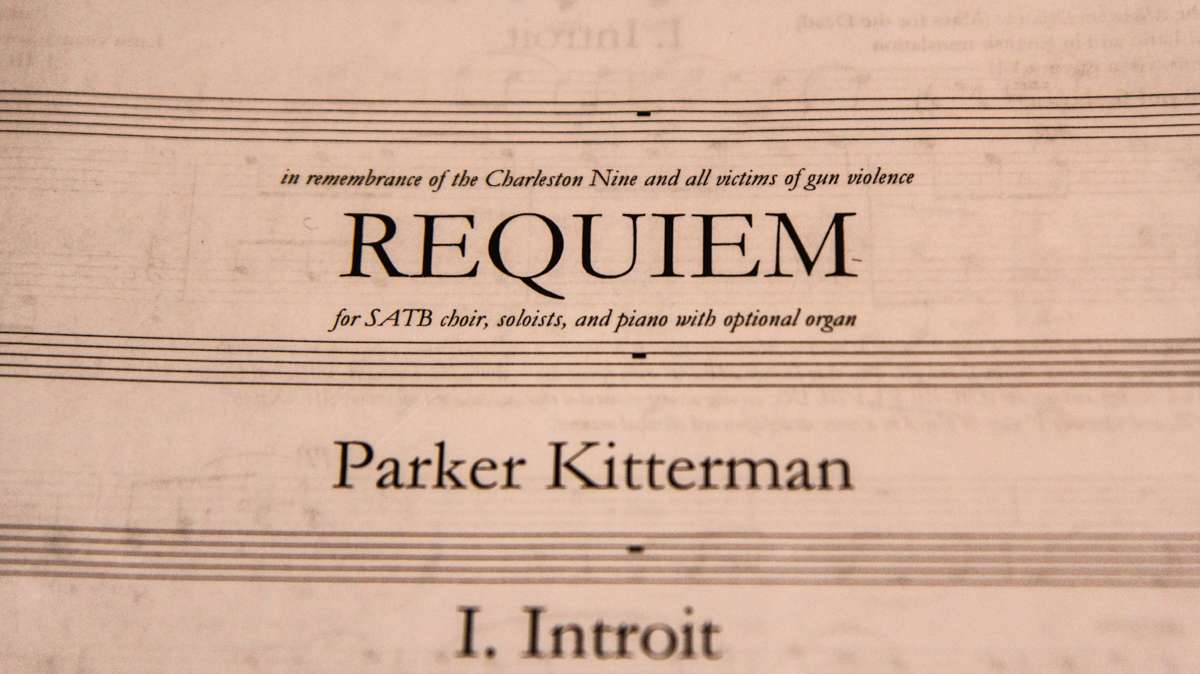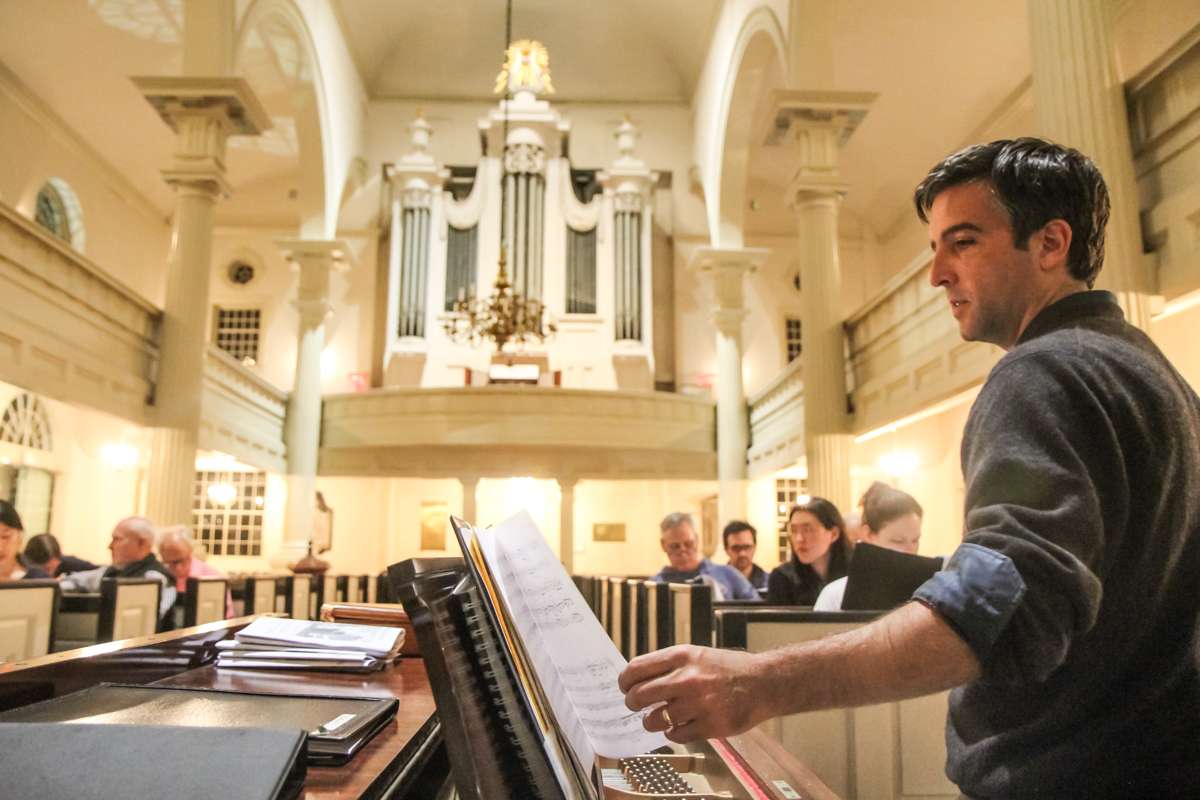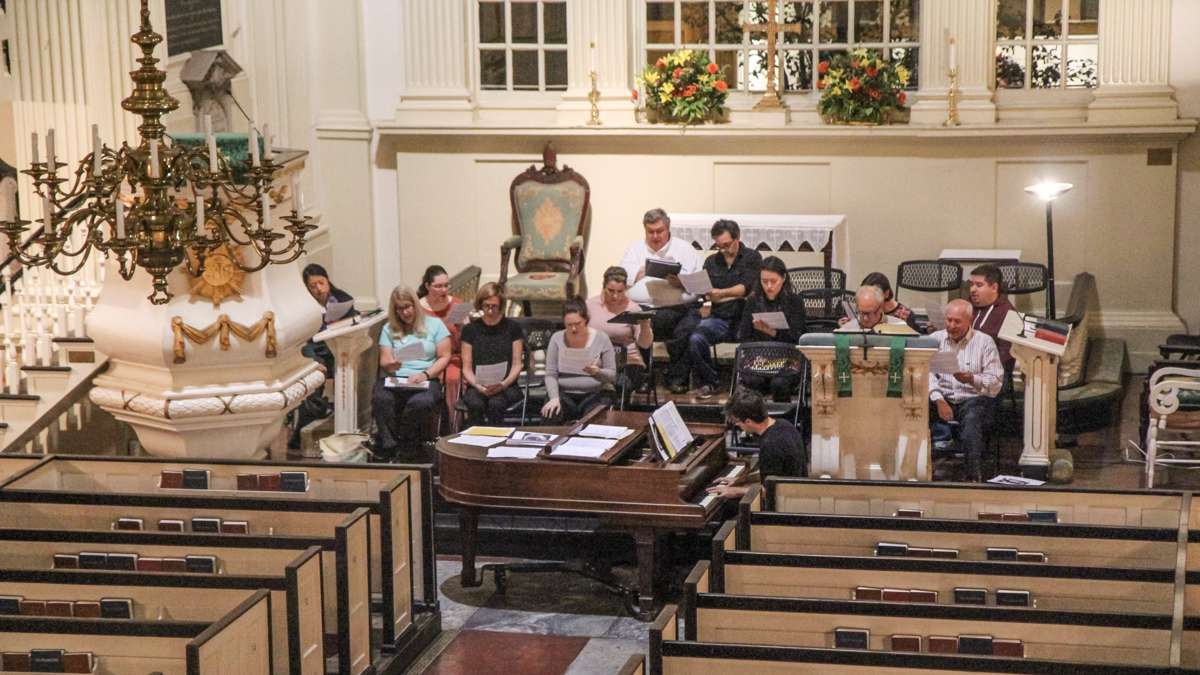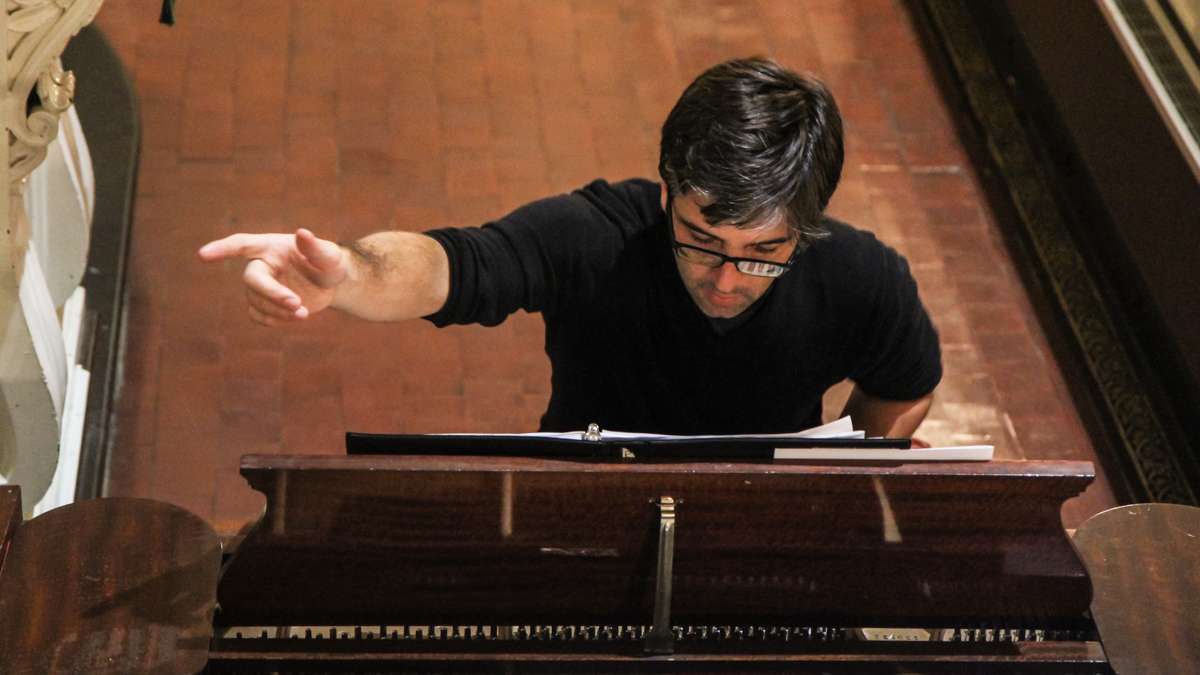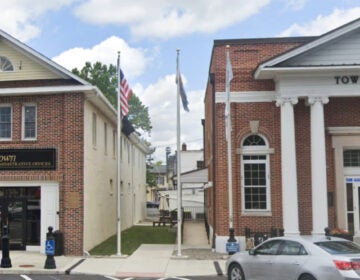Requiem premier expresses bottomless grief of gun violence
ListenMusic can speak to the yearnings that grief leaves inside us in a way that words alone cannot. I recently found another reminder of that in the work of Parker Kitterman, the organist, choirmaster and composer at Christ Church Philadelphia.
Like all of us, he was deeply affected by the June 17 shootings of the Charleston, S.C., worshipers. This summer, as he was preparing choir music for the year ahead, his mind went to All Saints/All Souls day on Nov. 1, when, in his Episcopal tradition, the community remembers the lives of all those who’ve died in the past year. The music on that holy day at 5 p.m. Evensong — just as the darkness sets in through the 18th-century clear glass windows at Christ Church — would commemorate the Charleston nine. Kitterman brought his own humanity to his work by not simply by choosing music for the occasion, but by writing an original composition in nine movements.
And what’s fascinating is how it weaves his own Southern musical influences and classical background into the legacy of the musical form of the Requiem mass, the traditional mass for the dead.
‘Grant them eternal rest’
Since the Middle Ages, the Requiem — meaning “rest” — has been a deep part of grief and healing for people in many Christian traditions around the world. The mass, which consists of several traditional movements, takes its name from the opening words “Requiem aeternam dona eis, Domine,” or “Grant them eternal rest, O Lord.” Musical settings of Requiems over the centuries show a rich variety. Composers have tapped a range of feelings expressed throughout the Requiem liturgy, including anger, fear, sadness and hope. The prism of the Requiem’s music and texts refracts listeners’ grief into all of its different parts.
That was the impulse that first moved inside Kitterman.
“At a loss for words to grapple with the immense sadness, despair and anger this event left in me, I turned to music,” he says. “One day, sitting at the piano, as I riffed on a minor-key gospel chord progression, the ancient words and chant melody ‘Requiem aeternam’ came to me and seemed to write themselves onto the modern chord changes as if by power of the Holy Spirit. A second, major-key theme came to me when I thought to translate the Latin psalm verse ‘Te decet hymnus in Zion’ into ‘Hymns of praise in Zion we lift to you’ in three-part gospel harmony.”
And here’s where it gets even more interesting. The Southern Gospel sound began to mesh with the ancient chant of the Requiem forms. “This new theme somehow worked in combination with the old Latin chant,” he says, “and soon the first movement was sketched out.”
Kitterman continued to find that his personal experiences were transformed into musical expression. For example: “The Introit’s transition from a dark D-minor to an ethereal E-major became, for me, a symbol of the unexpected sense of uplift which I felt after attending a vigil at Mother Bethel A.M.E. Church in Philadelphia days after the shooting, and which I try to impart throughout the piece. This idea of combining new harmonies, rhythms, melodies, and texts with old ones permeates each of the nine movements, and it may be seen as a metaphor for the joining of new members to the heavenly chorus of saints and angels.”
‘I’m hoping it can lift people up’
Music, like any art, has its own process of fulfillment, including a final product that is intangible and open to interpretation. To start with a musical idea, and to move through the phases of composition, notation, rehearsal and performance, is its own unique process that many of us know well, whether one played the trumpet in high school band or makes a living as a professional musician.
Indeed, in combination with the November premier of Kitterman’s Requiem, Ulrich Boeckheler, cellist with the Philadelphia Orchestra, will play a movement from the French composer Olivier Messiaen‘s “Quartet for the End of Time,” composed during World War II when Messiaen was a prisoner in a German camp. The quartet was premiered outdoors on a cold, rainy day in January 1941. Performers played on broken instruments. The audience comprised fellow prisoners and guards. Messiaen later recalled, “Never was I listened to with such rapt attention and comprehension.”
Maybe grief and music are like that. The timing of Kitterman’s premier and this posting is uncanny: four months after the murder of those nine worshipers in South Carolina, and exactly one month after the shootings at Umpqua Community College in Oregon. The morbid frequency of gun violence leaves us feeling continually battered and raw.
For Kitterman, composing for a volunteer choir and for listeners from any religious background, this meant creating a work that was, in his words, “tuneful and direct. It’s heartfelt, meant to be experienced in a direct way.”
This is where, in the process of bringing music to life, the meaning of the work moves beyond the composer’s inspiration to the listeners’ experiences.
“I’m hoping it can lift people up,” Kitterman says, “and give them a vehicle for whatever they need: grief, healing, or just the beauty of the music.”
WHYY is your source for fact-based, in-depth journalism and information. As a nonprofit organization, we rely on financial support from readers like you. Please give today.


